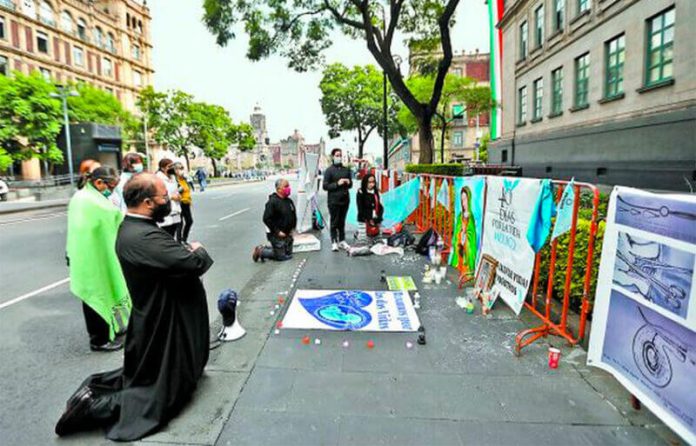The Supreme Court (SCJN) appears to be on the verge of setting a precedent that will pave the way for the legalization of abortion across Mexico.
The court’s justices began debating challenges to abortion restrictions in Coahuila and Sinaloa on Monday, and eight of the 11 indicated they are in favor of revoking criminal penalties for the termination of a pregnancy in the former state. The other three justices didn’t participate in Monday’s session.
Voting on the challenges is to commence on Tuesday. If a qualified majority of eight justices vote in favor of invalidating the section of the Coahuila criminal code that punishes abortion at any stage of a pregnancy by one to three years imprisonment, the court would set a precedent that would oblige judges across Mexico to hand down similar rulings.
Outside cases of rape and those in which an expectant mother’s life is endangered, abortion during the first 12 weeks of pregnancy is currently only legal in four states: Mexico City, Oaxaca, Hidalgo and Veracruz. But a court ruling that decriminalizes abortion in Coahuila would in time open up access to early abortion for millions of women in the country’s other 28 states.
Justice Luis María Aguilar, the proponent of the decriminalization of abortion in Coahuila, said the aim is to give women the right to make decisions about their own bodies and lives without facing prosecution. The state has an obligation to provide an “environment of protection” in which that can occur, “not one of punishment,” the justice said.
Aguilar also said that his proposal acknowledges the changes that have taken place in Mexican society as well as fundamental principles such as democracy and the separation of church and state.
Chief Justice Arturo Zaldívar said that all the SCJN justices are “in favor of life” but “some of us are in favor of women’s lives being lives in which their dignity is respected, in which they can fully exercise their rights, in which they are free from violence and can determine their own destiny.”
With regard to Sinaloa, Justice Alfredo Gutiérrez proposed a court ruling that declares the absolute prohibition of abortion in that state as unconstitutional. His proposal argues that a modification to the state’s charter that states that life begins at conception violates the Mexican constitution.
Gutiérrez also argues that states do not have the right to deny women access to sexual and reproductive health services, including abortion. In addition, his initiative seeks to invalidate a law that allows health personnel to refuse to carry out an abortion due to their own personal beliefs on the practice.
A qualified majority vote in favor of Gutiérrez’s proposal would also set a precedent for the legalization of abortion across Mexico.
As justices discussed the matters on Monday, conservative groups protested outside the Supreme Court building in Mexico City.
Holding signs with pro-life messages as well as religious imagery, the demonstrators exhorted the SCJN to not rule in favor of declaring abortion restrictions unconstitutional.
“We’re urging the Supreme Court justices to reject these [challenges to states’ efforts to limit abortions], … we trust that these justices are going to defend life,” said Leticia Gonzalez-Luna, president of the pro-life group Voz Pública.
In contrast, pro-choice activists were optimistic that the court would set a precedent that paves the way for legal abortion across Mexico.
“The SCJN will make the decriminalization of abortion a reality in all federal entities,” tweeted Estefanía Veloz, a feminist and lawyer.
